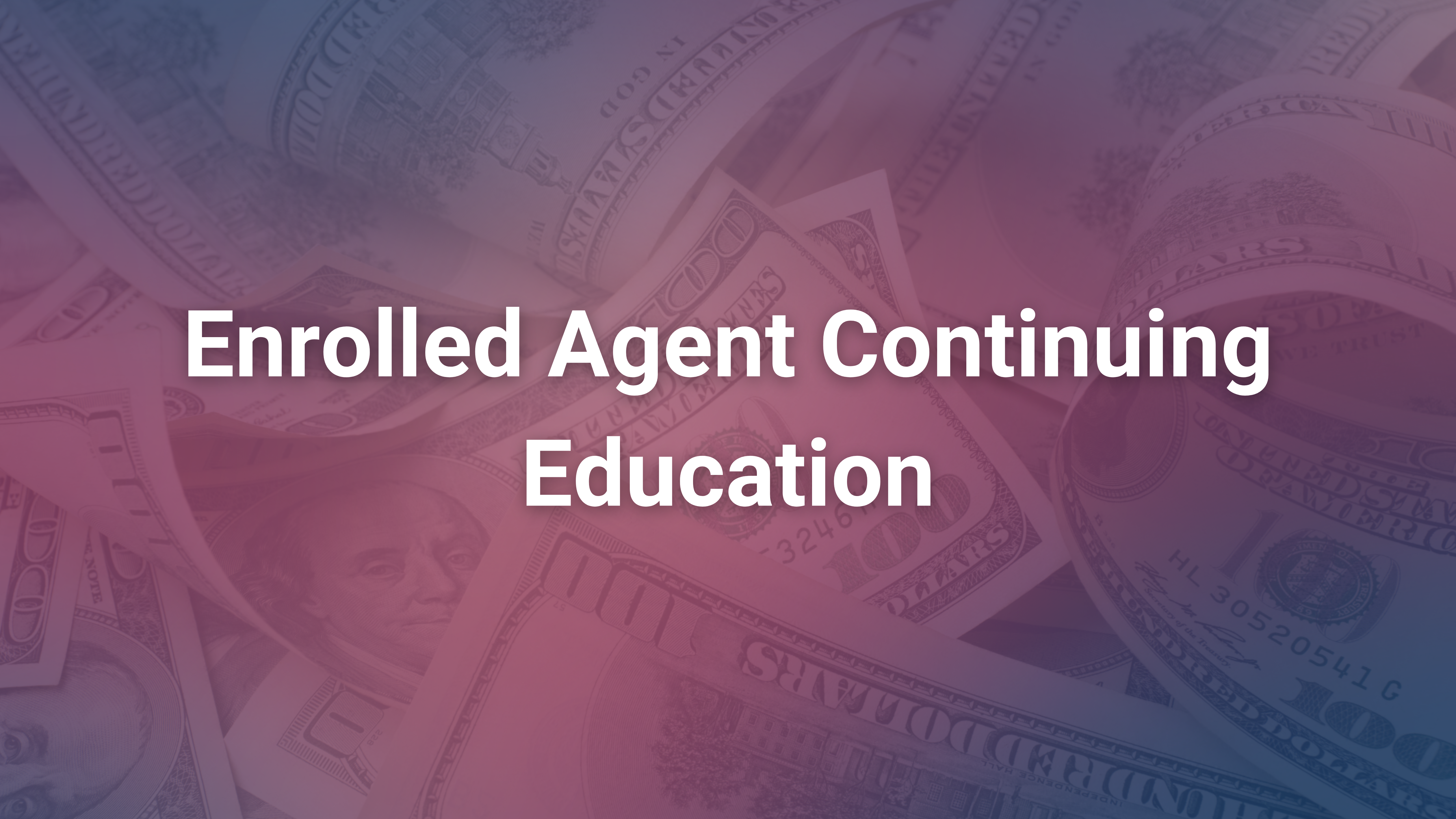If you’re an Enrolled Agent (EA), you know that passing the Special Enrollment Examination (SEE) is just the beginning. There’s a whole lot of work you need to be doing every year in order to maintain your EA status.
Since taxation is an ever-evolving field, with new laws, interpretations, and practices emerging regularly, you must commit to continued education in order to keep your EA credentials. Here’s a comprehensive look into the continuing education requirements for EAs with insights on what’s the best way to renew your EA credentials and keep up with the forefront of the tax profession.
Why Continuing Education?
Well, first of all, it’s mandatory.
But, it’s also a way to make sure you remain updated, competent, and capable of offering the best advice to your clients.
As representatives before the IRS, EAs need to be informed about the latest changes in tax laws, regulations, and procedures. This ongoing learning helps in:
- Maintaining Competency: It ensures EAs offer accurate and timely advice.
- Building Trust: Clients are more likely to trust an EA who’s updated with the latest information.
- Avoiding Penalties: Ignorance of the latest tax laws or regulations isn’t an excuse and can lead to penalties for both the EA and their clients.
The Requirements
To maintain their active status, EAs must complete 72 hours of continuing education every three years. This equates to an average of 24 hours per year.
Additionally, there is an Ethics Requirement. Out of the total, two hours per year (six hours in three years) must be dedicated to ethics or professional conduct.
Approved Programs
You must be sure that the courses you enroll in are recognized by the IRS. Otherwise you will be wasting your time and money. Courses should be:
- Listed by the IRS: The IRS provides a list of approved continuing education providers on their website. Ensure that your chosen course is part of this list.
- Relevant to Federal Taxation: Courses should cover federal tax matters. Programs based on general business topics won’t be considered for EA continuing education credit unless they have a direct link to federal taxation.
Reporting and Tracking
You need to be keeping records of your educational fulfillment so that all your hard work doesn’t go to waste. Keeping these records handy will make the renewal process that much easier.
Once you complete a course, the education provider typically sends a report to the IRS. However, it’s prudent for EAs to:
- Keep Records: Save certificates of completion or transcripts for at least four years. Store them either digitally or physically in a place that is easy to locate.
- Ensure Timely Reporting: The educational provider should report the completed hours to the IRS within 10 days.
- Double Check: The IRS allows EAs to check their reported continuing education credits through the online preparer tax identification number (PTIN) system.
And if you don’t do all this….
Failure to Comply
EAs who fail to meet the continuing education requirements or provide inaccurate information about their courses can and will face penalties including inactivation or termination.
Inactivation means that the EA designation is placed in an “inactive” status.
Termination refers to how EAs might lose their designation entirely if they remain inactive for a prolonged period.
To regain active status, EAs might need to make up for the missed education hours or, in severe cases, even retake the SEE.
Continuing education is serious business and not following through leads to stiff consequences. Don’t let all your hard work go by the wayside. Remember, these are requirements, not suggestions.
Continuous Learning Opportunities
Beyond the mandatory courses, EAs have other opportunities to expand their knowledge:
- Webinars and Online Courses: Many platforms offer courses, lectures, and webinars on specific taxation topics.
- Conferences: National and state tax organizations frequently organize conferences with workshops and sessions that qualify for continuing education. These events are also great opportunities to network with other tax professionals and can actually be a fun time. I know, fun and taxes don’t usually go together… but…
- University Courses: Some college-level tax courses might also be eligible for continuing education credits. Be sure to check before enrolling.
Think of continuing education as not just a checkbox but a valuable tool for Enrolled Agents to enhance their professionalism, grow their practice, and ensure the best service to their clients. By understanding and embracing these requirements, EAs are able to position themselves as experts in the dynamic world of taxation.
